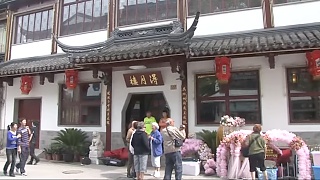LiánYúnGǎng's tourist attractions include :
Lian Island Resort, 连岛
A beautiful island connected to LianYun district by a 7 kilometer (4 miles) sea dyke, the longest in China. There are two main beach and swimming areas. Lian Island is also home to an annual music extravaganza that features some of China's most famous pop stars.
Huaguo Mountain, 花果山
[640],shadow=true,start=,stop=
 LianYunGang 连云港, JiangSu province
LianYunGang 连云港, JiangSu province





![`US-sponsored separatist groups, backed by Washington for decades, are being mobilized to attack and undermine activities related to the BeiJing 2022 Olympics, starting with the torch relay in Greece. I explain the background of the “Free Tibet” movement and how the US government, through the CIA, backed it as early as the 1950s and transferred its operations to the National Endowment for Democracy (NED) [or `Dominion` / enslavement]. ` With The New Atlas ... Bonus films - terror activities by US-backed `opposition` in Myanmar ... Bonus film 2 - subverting the `left` ... Bonus film 3 - on Ecuador ... Bonus film 4 - on Cambodia ... They say : `How dare you put your face in front of my fist ! Serve your master. Or else. ` More ... On the US plan to nuke Chinese cities - as revealed by Daniel Ellsberg, famous for the `Pentagon Papers`, with NuMuves ... On the Falun Gong cult ... *** Planning war on China – part 11 – don’t miss it ***](https://img.youtube.com/vi/2w31eNNcGVU/mqdefault.jpg)






